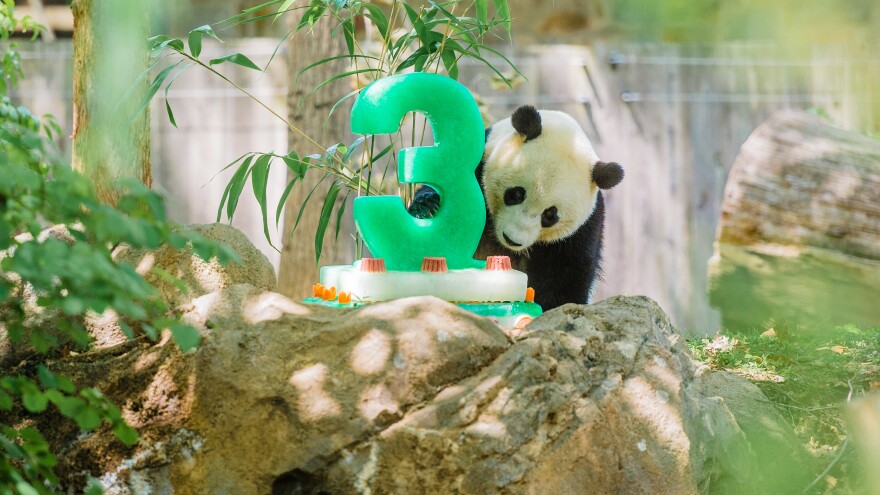Giant panda Bao Bao, born at the National Zoo in Washington, D.C., in August 2013, will be heading to China this winter.
Bao Bao's parents, Mei Xiang and Tian Tian, are on loan from China, and the agreement calls for any pandas born to the breeding pair to be sent to the Chinese breeding program before they turn 4.

Bao Bao's older brother, Tai Shan, made the journey in 2010. Now it will be Bao Bao's turn. FedEx will be flying her to Chengdu "within the first few months of 2017," the National Zoo says.
"Traveling during the colder months mitigates concerns over keeping Bao Bao cool," the zoo says in a press release. "The panda team will continuously monitor Bao Bao during the trip and will travel with a supply of her favorite treats, including bamboo, apples, pears, cooked sweet potatoes and water."

Before she goes, let's count down Bao Bao's final days with a look back at her greatest hits:
The zoo says there will be a special celebration to say goodbye to Bao Bao before she leaves for China.
The zoo still has one young giant panda, which will remain in the nation's capital for several more years: Bei Bei, who was born last summer.
Copyright 2023 NPR. To see more, visit https://www.npr.org.





